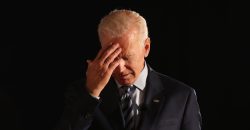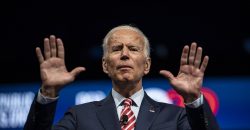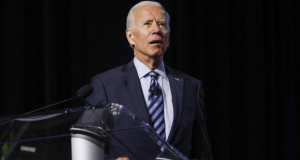The Washington Post: Interest groups gear up for what may be biggest Supreme Court fight since Robert Bork
In 1987, the then-executive director of the NAACP, Benjamin Hooks, promised to fight the nomination of Robert Bork to the Supreme Court “until hell freezes over.” Twenty-nine years later, that kind of no-holds-barred rhetoric — and worse — is likely to be repeatedly brandished by a plethora of Washington-based interest groups who will make it their […]
March 11, 2016In 1987, the then-executive director of the NAACP, Benjamin Hooks, promised to fight the nomination of Robert Bork to the Supreme Court “until hell freezes over.”
Twenty-nine years later, that kind of no-holds-barred rhetoric — and worse — is likely to be repeatedly brandished by a plethora of Washington-based interest groups who will make it their mission to either block or confirm whoever President Obama nominates to fill the Supreme Court vacancy left by the late Justice Antonin Scalia.
The left sees the battle as a two-pronged fight: the first to get Senate Republicans to break their blockade against considering a nominee, and the second over who that nominee should be. Conservatives are framing the clash as a singular showdown not about the nominee but the process — arguing the choice of the next justice should be left to the next president.
…
THE RIGHT:
On the right, some groups are wading into a Supreme Court nomination fight for the first time. Others have long pushed for conservative judges to serve on the federal bench. Their efforts are less coordinated than those of liberal groups, but they are prepared to spend millions on what they view as an epic fight. They include:
Judicial Crisis Network
Previously named the Judicial Confirmation Network, the conservative legal group was founded during the Bush administration to help confirm that president’s Supreme Court nominees. But the group changed its name in 2010 (as it went on defense during the Obama administration) to the Judicial Crisis Network following the confirmation of Sotomayor, Obama’s first Supreme Court nominee. The group also works to influence the makeup of judges at the state, federal and appellate court level.
Less than a week after Scalia’s death, the network announced a seven-figure advertising campaign aimed at pressuring Senate Majority Leader Mitch McConnell (R-Ky.) and other Republicans to stall action on a nominee until after a new president is elected. The ad buy included television, radio and digital campaigns aimed at vulnerable GOP Sens. Kelly Ayotte (N.H.), Chuck Grassley (Iowa), Ron Johnson (Wis.), John McCain (Ariz.), Rob Portman (Ohio) and Pat Toomey (Pa.), all of whom are up for reelection in November. It later launched a six-figure digital ad campaign targeting Democrats.
“We’re doing a lot more this time around than we were during the [Elena] Kagan nomination,” said the group’s chief counsel and policy director Carrie Severino.
The network is bigger today, and has a larger budget.
Severino herself did most of the group’s research on Kagan in 2010, poring over the former solicitor general’s judicial record, speeches, articles and responses to the judicial questionnaire. This time, Judicial Crisis Network hired America Rising LLC — the research arm of America Rising, an independent group that does opposition research for Republican candidates and committees. A team of about 10 researchers, including a number of lawyers, is tasked with the job. They include some hired on contract who have previously worked for the Republican National Committee and have experience vetting judicial nominees.
“We’ve learned from previous nomination battles that having the best, most relevant information [about nominees] is really important,” said Brian Rogers, executive director of America Rising Squared, and former communications director for Sen. John McCain (R-Ariz.).
“These people have big records. It’s a lot of work. That’s the foresight JCN has in this fight…to invest early. No matter what the Senate does or doesn’t do, there’s going to be a real public debate about this. There already is, and we need to be a part of it.”
…
This article was excerpted from The Washington Post. Click here to read the full article online.
Keep tabs on the Democrats. Sign up for news.
Keep tabs on the Democrats. Sign up for news.






